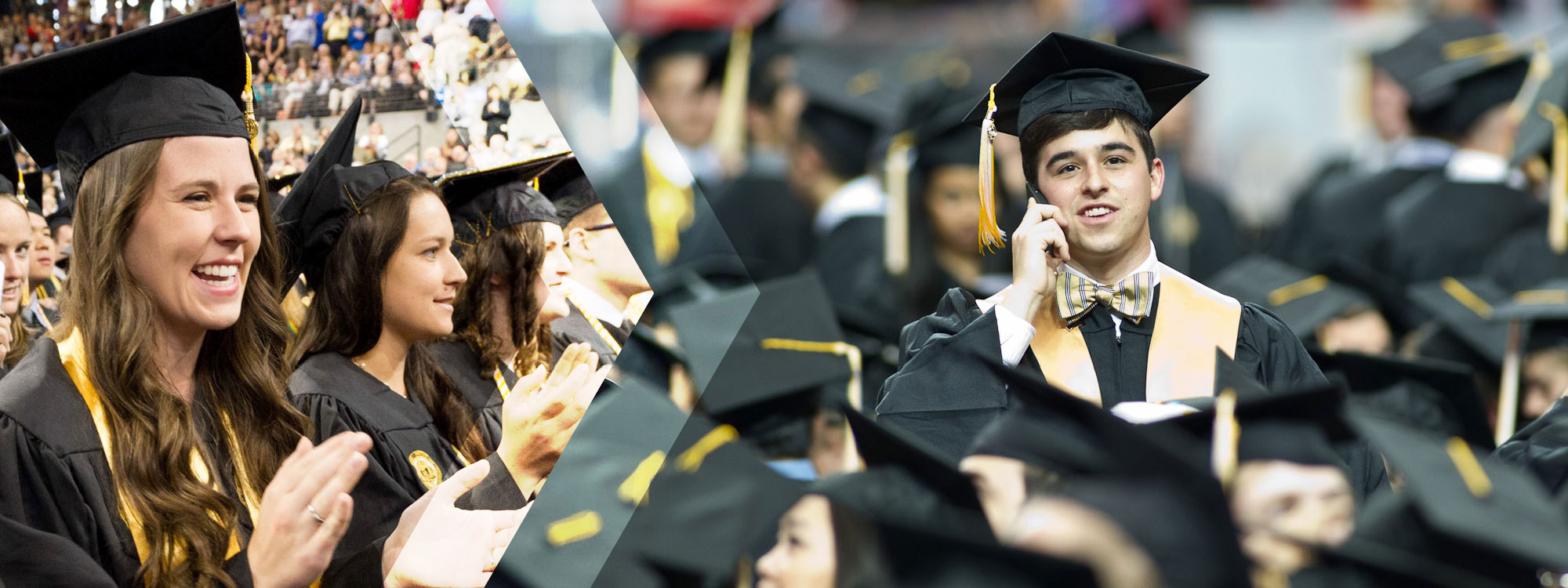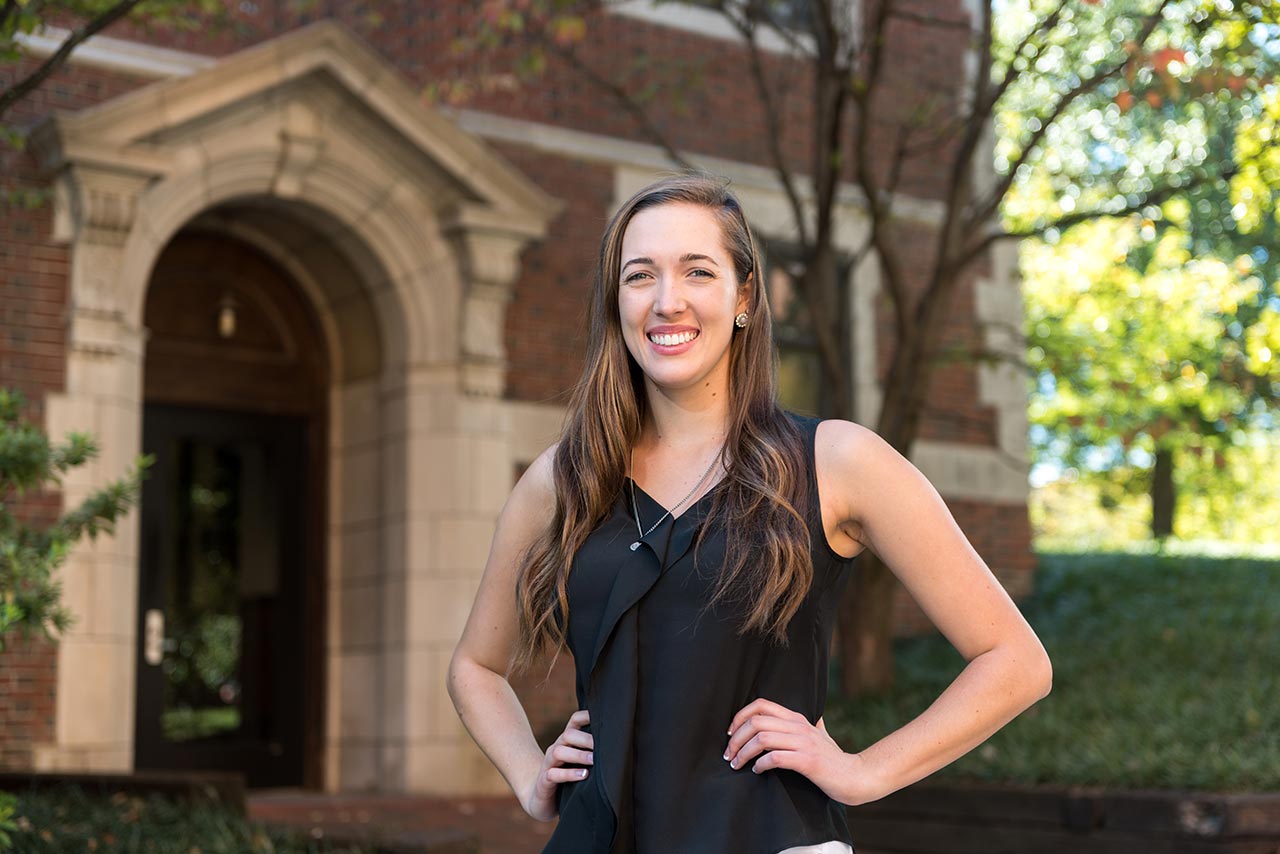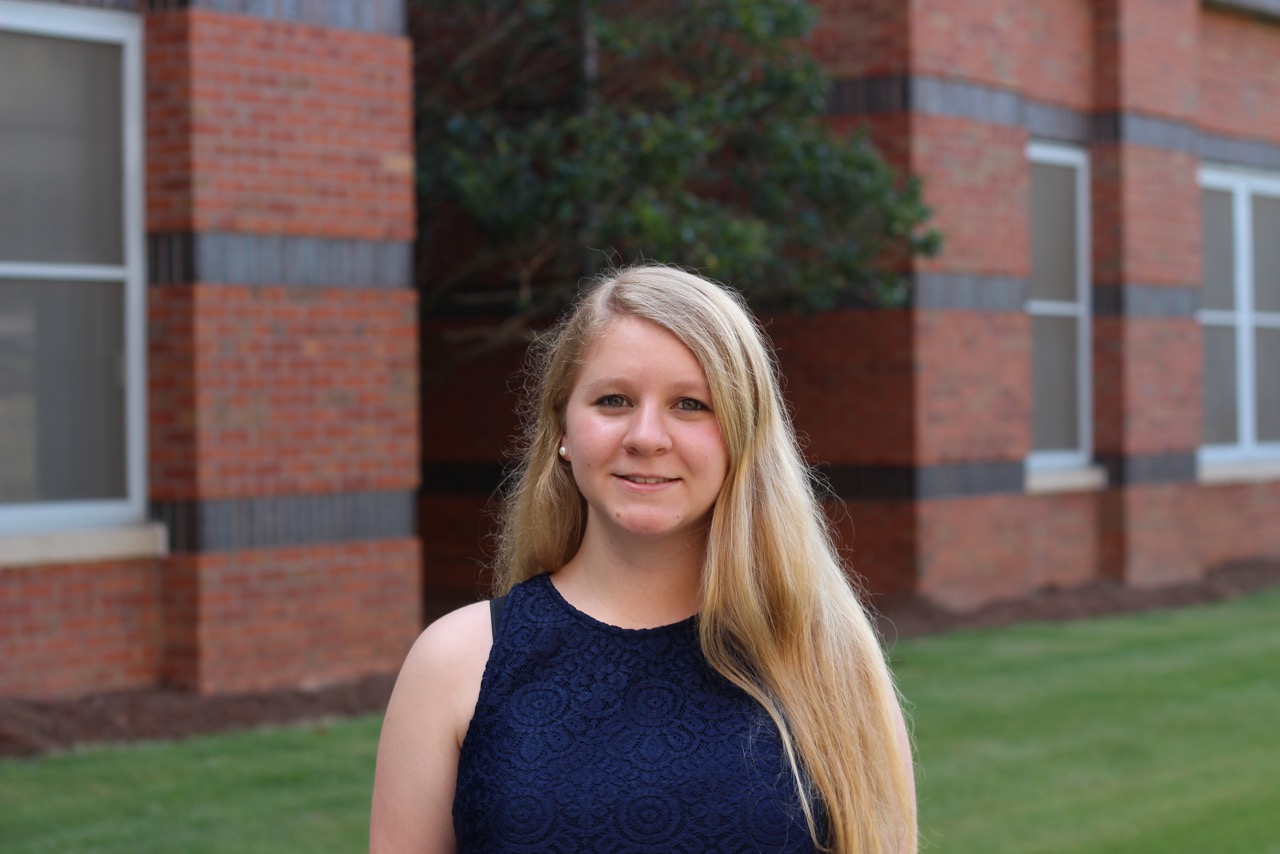
Philanthropy makes a difference, one student at a time.
At the very moment when a college degree is considered, more than ever, a ticket to professional success, it is slipping out of reach for more and more young people. Georgia Tech is no exception. Today, the Institute's inability to meet the financial need of a significant proportion of undergraduates is nothing short of urgent.
For starters, the capacity for addressing need is limited by the state law that forbids using tuition or state core funding for scholarships — which means that Tech must rely heavily on private sources.
This is exacerbated by the fact that for more than a decade — as part of a national trend that has unfolded over the past 30 years — Georgia Tech has seen a systematic decline in state funding and a steady rise in tuition. (In 1986, state funding made up almost 55 percent of the Institute's annual revenue, while tuition comprised 11 percent. In 2016, those numbers were 16 and 23 percent, respectively.)
As of fiscal year 2015, the average Tech student was graduating with $24,000 in debt. Great students who have been admitted are choosing other universities, often outside the state, because they are able to offer financial aid packages that make the out-of-pocket cost to students and their families much lower.
Even with the Georgia Tech Lottery-funded HOPE and Zell Miller scholarships, federally funded Pell grants, and institutional scholarships and grants funded through philanthropy, there are far too many undergraduates, both in-state and out, both middle-income and low, facing an increasing amount of unmet financial need.
Some peer institutions, such as the University Virginia and UC-Berkeley, meet 90 to 100 percent of need for students, compared to Tech's average of 25 percent. "Georgia Tech is competing with the best universities for the best students in the nation," said Rafael L. Bras, provost and executive vice president for Academic Affairs and the K. Harrison Brown Family Chair. "Increasingly, our peers are guaranteeing the education of anybody they admit, with generous financial packages that make their cost of attendance extremely attractive. We are losing some of the best and the brightest from Georgia and beyond because they are receiving more attractive financial aid from very good universities."
What do Bras and other Institute leaders want to do about it? "Our goal should be that anybody who is admitted to Georgia Tech and wants to attend can do so without undue financial burden," he said. "We must be the university of choice for all."
Home Grown
In 2007, Georgia Tech launched a scholarship program designed to give qualified in-state students the opportunity to graduate debt-free. Among the requirements was that the students' families or guardians had to earn less than $33,300 a year. (This year's freshman cohort of Tech Promise Scholars has an average family income of $22,756.)
Average debt of a Tech Graduate as of 2015
Tech Promise Scholars average family income
Number of Georgia Tech undergraduates who are facing financial need
Named the following year in honor of President Emeritus G. Wayne Clough, CE 1964, MS CE 1965, HON Ph.D. 2015, the program has provided supplemental funding for hundreds of Georgia students, enabling them to fulfill their dreams of a Tech education — debt free. As of May 2016, a total of 473 Tech Promise Scholars had earned bachelor's degrees; of these, 43 went on to earn master's degrees here. During this period, commitments to the permanent endowment that provides primary funding for Tech Promise has grown from zero to more than $60 million — but not all of those funds are in hand.
"Some of the most rewarding moments I have had in my position as president have been to shake the hands of our graduates as they walk across the stage at Commencement," said President G.P. "Bud" Peterson. "I am enormously proud, and especially so when I shake hands with a Tech Promise Scholar, because I know that not only has their life changed, but also the lives of their families, and those of generations to follow."
One of those students who will be shaking the president's hand in a couple of years is Victoria Inman, PUBP 2018, recipient of the Brook Byers Georgia Tech Promise Scholarship and the Jack and Anne Glenn Tech Promise Scholarship.
A native of Sugar Hill, Georgia, she and her mother weighed her college options (which included Vanderbilt and Emory) based on cost and potential debt. When she applied for and was accepted as a Tech Promise Scholar, she recalls, "I immediately started crying. I will forever remember that moment."
Inman started out as an engineering major, but later switched to public policy. Today, she is pursuing a pre-law minor and plans to attend law school. She would like to become an advocate for human trafficking survivors — an issue she immersed herself in after a professor assigned her class to find a specific policy program to explore in depth. "Fighting against human trafficking is changing people's lives at the very base of it," said Inman. "Free will is the very basis of what makes us human. Taking that away is unimaginable."

Whatever comes next, Inman knows how pivotal Tech Promise was in creating opportunities that otherwise would have been out of her reach. "Being at Tech itself is a life-changing experience that so many don't think they can achieve," she explained. "They don't have the funds even though they have the skills and intellect." This scholarship, and the private philanthropy that makes it possible, "really is investing in human capital. Investing in me as a person."
Outside Looking In
For students with demonstrated financial need who are not from Georgia, the financial challenges are even greater. While they too have numerous co-op, work study, and scholarship opportunities, enormous gaps remain between costs and financial capacity.
For decades, private philanthropy has generated hundreds of individual endowed scholarships targeted specifically to these students, and they are crucial to bridging the gaps and making Tech affordable or, in some cases, debt-free.
Kristina Bates, BME 2019, who hails from Houston, Texas, is the recipient of the Godbold Family Foundation Scholarship — the largest single scholarship program for out-of-state students at Georgia Tech, founded in 1999 by Francis S. "Bo" Godbold, IE 1965, and his wife, Betsy. Godbold Scholars have 100 percent of their financial need met, with matching funds from the Institute in combination with a $2,500 work study component.

From an early age, Bates knew she wanted to be an engineer. So, when it came time to choose a college, she set her sights on Georgia Tech. "I was thrilled when I was accepted," she recalled. "Until I realized how much it would cost me to attend." Then she received a call that changed her life. "I had been awarded the Godbold Scholarship. I took one step on campus and my decision was made."
I am enormously proud, and especially so when I shake hands with a Tech Promise Scholar, because I know that not only has their life changed, but also the lives of their families, and those of generations to follow.
- President G.P. "Bud" Peterson
From an early age, Bates knew she wanted to be an engineer. So, when it came time to choose a college, she set her sights on Georgia Tech. "I was thrilled when I was accepted," she recalled. "Until I realized how much it would cost me to attend." Then she received a call that changed her life. "I had been awarded the Godbold Scholarship. I took one step on campus and my decision was made."
Growing up in the shadow of the Johnson Space Center, Bates also has a lifelong interest in NASA and the space industry, and she wants to take her training as biomedical engineer into space, designing medical devices and life support systems for astronauts. It is an opportunity that she is acutely aware of and grateful for. "Without this scholarship, I would not have been able to pursue my passions," she explained. "I have discovered my true potential as a student and as an engineer."
Philanthropy: It's in Our DNA
Private philanthropy has been and will continue to be the bedrock supporting the Institute's commitment to student access and excellence. It's in Georgia Tech's DNA.
"We want to ensure that no qualified student is unable to attend Georgia Tech for financial reasons, and to do everything we can to address the unmet financial need of all of our students," Peterson said. "Through philanthropy, we can make the seemingly impossible a reality."
"This academic year alone, more than 6,000 of our undergraduates are facing financial need," said Marie R. Mons, director of the Office of Scholarships and Financial Aid at Georgia Tech. "Part-time jobs, co-op, and state and institutional scholarships help, but they are not enough. Loans are available, but rising student debt is a real and serious concern. It is the generosity of donors that makes it possible for thousands of students to become proud Yellow Jackets" — indeed, generations of students who, through their dedication and talent, have demonstrated a desire and an aptitude to become Georgia Tech graduates.
Without this scholarship, I would not have been able to pursue my passions. I have discovered my true potential as a student and as an engineer.
- Kristina Bates
